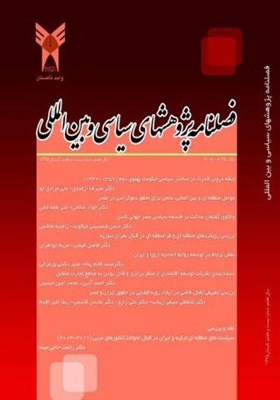بررسی تطبیقی نقش قاضی در ایجاد رویه قضایی در حقوق ایران و مصر
محورهای موضوعی : مجله پژوهش های سیاسی و بین المللی
کلید واژه: قواعد حقوقی, رویه قضایی, قاضی, تفسیر قانون, حقوق مصر,
چکیده مقاله :
از آنجا که جوامع انسانی همواره پویا هستند و قوانین به بیان اصول و قواعد کلی بسنده می کنند، رویه قضایی در نقش تکمیلی و تفسیری می تواند تفاسیری منطبق با واقعیات و ضروریات اجتماعی از قانون ارائه دهد؛ در حقوق ایران، رویه قضایی به معنای آرای همانند دادرسان از منابع تکمیلی و تفسیری بوده و پذیرش این امر که موجد قاعده حقوقی باشد دشوار به نظر می رسد؛ در حقوق مصر قاضی را قانون گذار دومی می دانند که به قانونگذار اول می پیوندد؛ قانونگذار مصری اهمیت اجتهاد قضائی و اجتهاد فقهی را به رسمیت می شناسد. مقاله حاضر در بخش اول؛ به بررسی نقش قاضی در نارسائی های قانونی و در بخش دوم؛ به نقش قاضی در توسعه قواعد حقوقی می پردازد
Societies are always active and laws just emphases on the general principles and rules, jurisprudence can present the interpretations based on the facts and social requirements of the law. In Iran’s law, jurisprudence is the similar court judgment supplementary and expository sources of law which seems to be difficult to accept that creating legal rule; In Egyptian law, a judge has been known as the secondary legislator as well which joins with the first legislator; Egyptian legislator recognizes the importance of juridical and legal IJTIHAD. The main subject of this article is a comparative study of the role of judges in creation of jurisprudence in the Iranian law and one other legal written system which is presented in two parts. In the first part, the role of the judge in legal insufficiency and in the second part examines the role of the judge in the development of legal rules.

